NCNU 101: A primer on our international opportunities
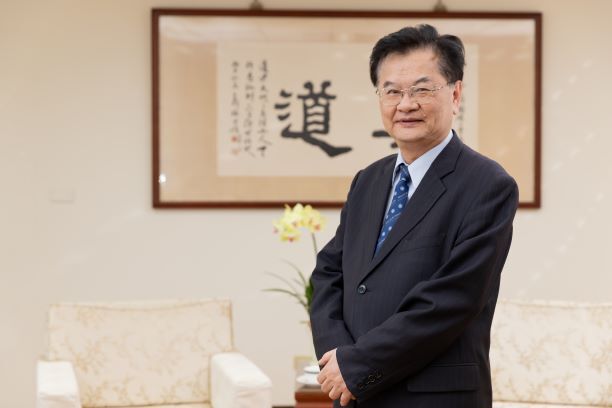
NCNU President Su Yuhlong (蘇玉龍)
Established in 1995, National Chi Nan University is tasked with both securing the inheritance of classical Chinese culture and cultivating a new generation of global-minded professionals through the colleges of humanities, management, science and technology, and education.
Under the leadership of NCNU President Oliver Yulong Su, 20 task units comprising nearly 700 faculty members are steadily transforming NCNU into central Taiwan’s foremost cradle of humanistic, insightful, and passion-driven research and education. NCNU has the highest international-to-local student ratio among Taiwanese universities, and has further plans for becoming even more internationalized and connected with the global community.
For example, as sister school to 102 overseas and 44 Chinese academic institutes as of July 2018, NCNU hosts an average of 800 international students every year who come to study from its 160 language courses. NCNU also has one of the most comprehensive programs for training talents for the Southeast Asian markets.
Noting that Taiwan’s future development depends on internationalization, President Su pointed to NCNU’s stellar programs for learning English, Japanese, and European languages, and how the university has been working with Southeast Asian markets for over two decades. NCNU is well-equipped with academic resources and teachers for enhancing the global mobility of both international and local students, he added.
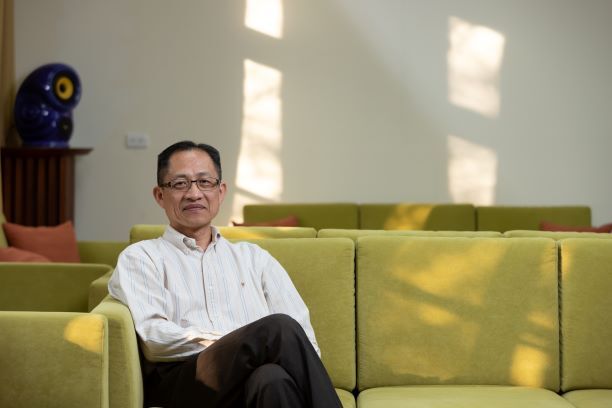
Dean Chen Chien-liang (陳建良), College of Management
A wealth of Southeast Asian opportunities
Further internationalization is the collective goal of all those working to better the school, stated Dean Chen Chien-liang, of NCNU’s College of Management. He explained that Southeast Asia is the fastest-growing economic bloc with great development potential and a high demand for skilled professionals, and students should pursue opportunities that can help deepen their understanding of the world, travel beyond Taiwan’s borders, and take an interest in global affairs.
Director Chen Pei-hsiu, of the NCNU Center for Southeast Asian Studies, has no doubt about Southeast Asia’s potential. He urges students to prepare by studying English and a Southeast Asian language, applying for study abroad programs, and looking for internships in Southeast Asia.
Professional Hung Wen-jou of the Department of International and Comparative Education agrees with Director Chen’s assessment, stating that those who seek employment in Southeast Asia should consider Vietnam, Thailand, Malaysia, or Indonesia, as Taiwanese and transnational companies are well-established there and more promotional and training opportunities are available. She advises students to become more familiar with foreign languages and cultures, utilize the university’s overseas programs, and strengthen their problem-solving and teamwork skills.
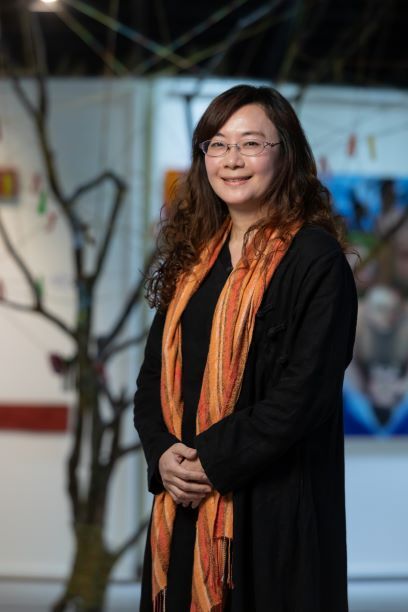
Professor Hung Wen-jou (洪雯柔), Dept. of International and Comparative Education
Stronghold of Southeast Asian research
Harnessing resources from private and public sectors, NCNU has spent over a decade planning and implementing educational programs that can boost students’ international mobility. The NCNU Center for Southeast Asian Studies was founded upon the university’s establishment, becoming the first of its kind in Taiwan. The center is also the publisher of the Taiwan Journal of Southeast Asian Studies, the nation’s foremost and only academic journal dedicated to this field.
To further cement NCNU’s role as a Taiwanese stronghold of Southeast Asian research and education, the center’s establishment has since been followed by a graduate program in 1997, a graduate program for working professionals in 2006, a doctoral program in 2008, and the launch of the Department of Southeast Asian Studies in 2014.
NCNU also offers many competitive opportunities not available in other universities, including language courses and overseas volunteer programs oriented at helping students learn and experience more about Southeast Asian cultures. Recent collaborations among different departments and academic fields have also culminated in parental counseling and parenting pamphlets for new immigrants, a volunteer group for serving Southeast Asia, and training for those who aspire to work in finance and trade in relations to the Southeast Asia bloc.
These projects and more are part of the university’s hopes to bring together academic professionals, non-governmental organizations, and civic groups to strengthen exchanges and hold dialogue with Southeast Asia.
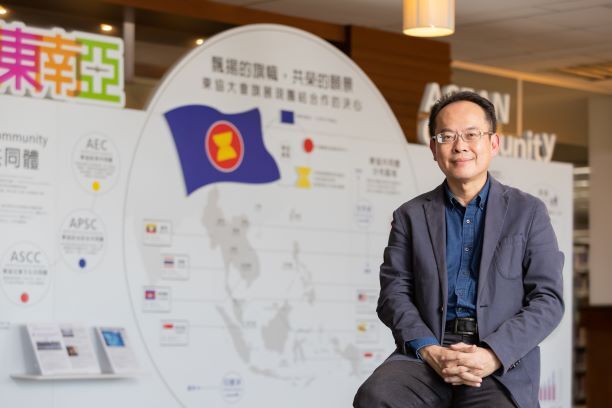
Director Chen Pei-hsiu (陳佩修), Center for Southeast Asian Studies
Myanmar and the New Southbound Policy
With funding from the Ministry of Education, the university has also established the Taiwan Education Center in Ho Chi Minh City. Located upon the campus of Ho Chi Minh City University of Social Sciences and Humanities (HCMUSSH), the center promotes Taiwan’s academic institutes and Chinese-language education through overseas recruitment and partnership with Vietnamese schools. The center also organized the annual Taiwan Education Fair in 2014, 2016, and 2017, which saw an attendance exceeding 10,000 Vietnamese students.
Moreover, the Presidential Office’s New Southbound Policy has allocated a special 2017-18 budget to help fund NCNU’s recent forays into Myanmar. NCNU is now recruiting Taiwanese universities to jointly set up a center for Taiwan-Myanmar exchanges in academia and culture with partner organizations National Chung Hsing University and Asia University. The initiative will also create a database of professional talent with interest or experience in Burmese affairs, and launch a platform for sharing resources and networking with Taiwanese businesses in Myanmar.
To enhance domestic understanding of Myanmar and its great development potential, NCNU is now organizing related seminars, youth technician training, overseas Burmese student organizations, programs for nurturing agricultural and tourism professionals, and academic forums dedicated to Burmese studies.
Having identified the demands of various Burmese industries through such exchanges, NCNU will begin to formulate the steps needed to establish a Taiwan-Myanmar center by utilizing the strengths of partner schools, securing the support of the Ministry of Education and other ministries, and gathering more information on Myanmar’s economic activities through field research.
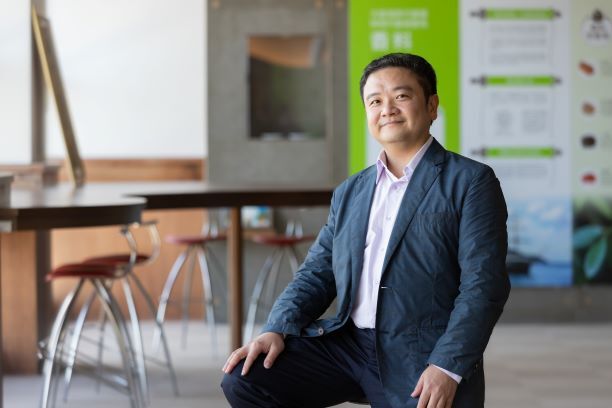
Professor Yang Wu-hsun (楊武勳), Dept. of International and Comparative Education
International opportunities at NCNU
Meanwhile, the university is already equipped with a wide variety of international exchange programs with over a dozen of schools based in countries such as Japan, Malaysia, Thailand, Vietnam, the United Kingdom, and the United States. Several grants are offered for overseas exchange:
1. Overseas grant for academic excellence
2. Overseas grant for disadvantaged students
3. Overseas grant for internship programs
4. Additional exchange programs and volunteer opportunities are offered by individual departments and programs.
The Language Corner program offers foreign-language activities hosted by both Taiwanese and international teachers on a weekly basis. Current foreign-language options include Chinese, English, German, Japanese, and Spanish.
The Reading Corner on the second floor of the NCNU library offers over 5,000 books in English, German, Japanese, and Spanish. Arranged by comprehension levels, the foreign-language collection comprises of illustrated books, young adult fiction, and popular novels that were adapted into television series and films.
The Testing Corner program offers sample test questions from standardized tests such as the GEPT (General English Proficiency Test) and TOEIC (Test of English for International Communication). All students are welcomed to practice their English reading and listening comprehension through this free online service.
As noted by Professor Yang Wu-hsun of the Department of International and Comparative Education, NCNU is known for its competitive programs on international education, Southeast Asian languages and cultures, competitive rowing, and women’s softball.
It would be our pleasure to become part of your academic journey.

